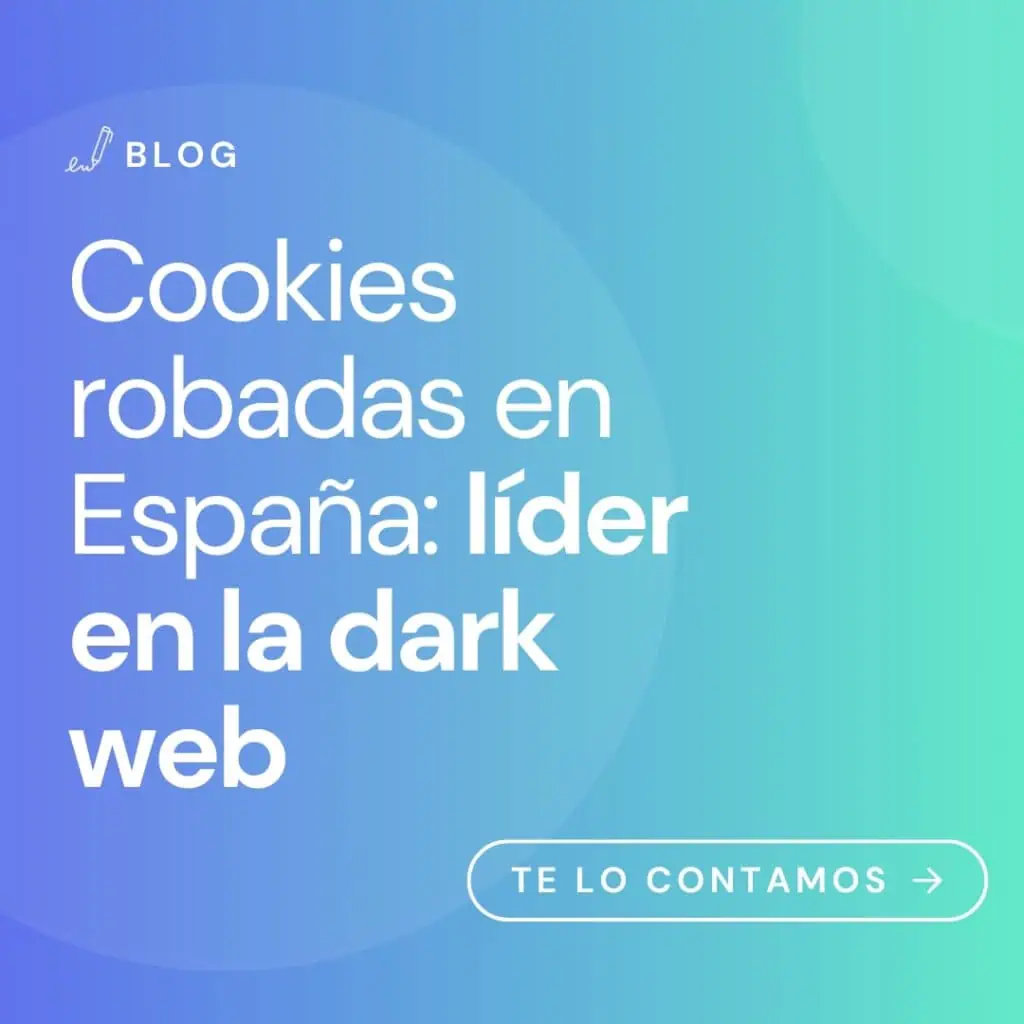

More than 550 million web cookies from Spanish users are for sale on the dark web. We explain what they are, why they pose a real risk, and what you can do to protect your data and your users’ data.
A NordVPN report revealed that Spain is the European country most affected by the illegal sale of web cookies, with more than 554 million exposed. Globally, it ranks 20th.
These web cookies are obtained both through theft via malware and through “legal” transfers to data brokers, due to unclear policies on some websites that lack a solid privacy policy and a visible legal notice.

Web cookies are small files that act as digital keys. In the hands of attackers, they can grant direct access to active accounts such as:
In addition, many contain sensitive identifying data, such as:
Without proper cookie management, these cookies can become a major risk for both users and businesses.
1.“Legal” transfer:
Some websites sell web cookies to data brokers, who then resell them without controlling their final use.
2.Theft through malware:
Through cyberattacks, attackers extract cookies stored in the browser by exploiting system vulnerabilities.
Here are some key steps you can take:
For digital businesses, adding a clear cookie banner and using a reliable cookie plugin to control installation and consent is essential to comply with web data protection and eCommerce legal requirements.
Web cookies enable a better digital experience but can put your privacy at risk if not managed properly. The key is to accept only what’s necessary, keep your browser clean, and use tools that protect your data.
At Lawwwing, we help you understand and manage these risks:
In addition, as a legal tech platform, Lawwwing helps you keep your website up to date on web data protection, legal notices, and privacy policies.